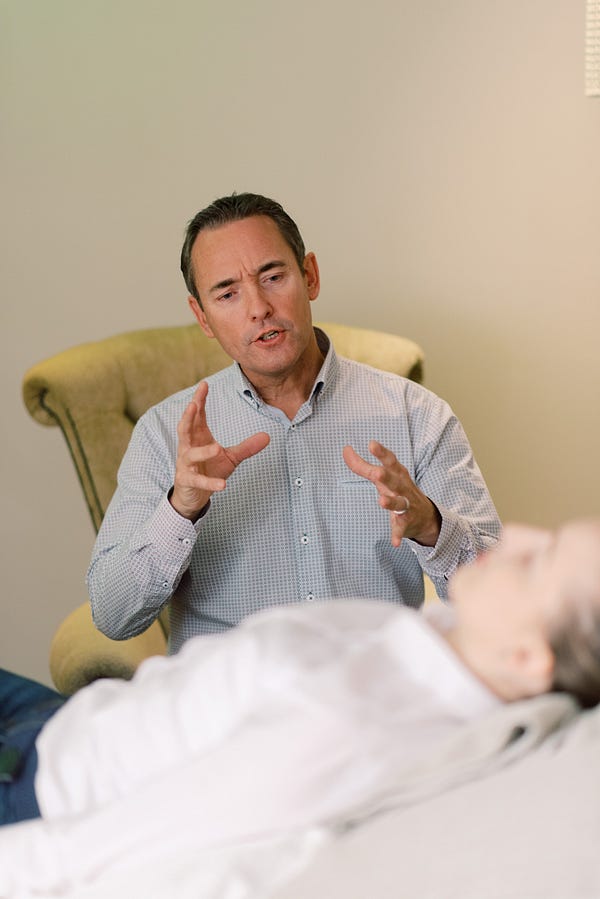You were once whole, but now you feel like a shell of your former self. Emotional abuse has a way of stripping away your identity, confidence, and self-worth, leaving you shattered and questioning your own reality.
But there is hope — you can rise from the ashes. Rebuilding yourself after emotional abuse is challenging, but with time and effort, you can reclaim your sense of self. It starts with realizing your inherent worth, setting boundaries, and reconnecting with who you are.
This journey is deeply personal, but know that you are not alone. Many have walked this path before you, and there are resources and communities to help guide you each step of the way.
Together, we will explore how to rediscover your voice, embrace self-care, and nurture the flame within that refuses to be extinguished. You will heal and become whole again. The phoenix will rise.
Establishing a Daily Routine for Stability
Establishing a steady routine provides stability when everything else feels uncertain. Start by waking up and going to bed at the same time each day, even on weekends. Having a predictable schedule helps you feel more in control of your life.
Make time for self-care. Whether it’s exercising, journaling, or pursuing a hobby, do something each day that boosts your confidence and self-esteem. Even taking a 30-minute walk can help clear your mind and release feel-good endorphins. Staying active and engaged with the world around you prevents isolation and negative rumination.
Connect to your support network. Call a friend or family member, join an online support group, or see a counselor. Talking to others who understand what you’re going through can help overcome feelings of shame and validate your experiences. Let the people who care about you support you — you don’t have to go through this alone.
Practice positive self-talk. Speak to yourself with encouragement and compassion. Notice negative thoughts about yourself and try to reframe them into more constructive ones. Be gentle with yourself — you’ve been through a trauma and recovery takes time. With daily effort, positive self-talk can become second nature.
Establishing stability and self-care, connecting to your support network, and practicing positive self-talk are all steps toward rebuilding your sense of self. Have patience with the process — each small act of courage and kindness towards yourself moves you closer to reclaiming your power and embracing who you are. You’ve got this!
Seeking Professional Support and Therapy
Seeking counseling or therapy after experiencing emotional abuse is one of the best steps you can take. Speaking with a licensed professional can help you work through painful emotions, process trauma, rebuild your self-esteem, and learn healthy coping strategies.
Finding the Right Therapist
Do some research to find therapists in your area who specialize in abuse and trauma. Check reviews from other clients and schedule consultations with a few to find one you connect with. A good therapist should be empathetic, and non-judgemental and make you feel heard and supported.

The Benefits of Therapy
Speaking with a therapist regularly has many benefits. It can help you:
-Gain perspective on the abuse and manipulations you endured. A therapist can validate your experiences and remind you the abuse was not your fault.
-Learn to set boundaries and recognize unhealthy behaviors in relationships. This is key to avoiding abuse in the future.
-Address feelings of anxiety, depression, or PTSD. A therapist can provide coping strategies and tools for managing symptoms.
-Rebuild your self-confidence from the ground up. With the support of a therapist, you can let go of negative beliefs instilled by your abuser and reconnect with your inherent self-worth.
-Find closure and make peace with the past. Therapy can be an opportunity to process unresolved emotions and find a sense of resolution, allowing you to move forward in a healthy way.
The journey to recover your sense of self after abuse is challenging but rewarding. With professional support, you can rise from the ashes of your painful experiences to build a happy, fulfilling life defined by your own strength, wisdom, and independence.
Setting Boundaries in Future Relationships
Setting clear boundaries in your relationships is one of the healthiest things you can do after experiencing emotional abuse. Boundaries establish your limits and teach others how they can treat you with kindness and respect.
Be very selective.
Take your time getting to know new people before opening up or trusting them. Look for those who treat you well and support your healing process. Avoid anyone who ignores your boundaries or makes you feel bad about yourself.
Communicate your needs.
Politely but firmly tell others what is and isn’t okay. For example, say “Please speak to me with kindness. Yelling and insults are not acceptable.” If they continue to cross the line after being warned, spend less time with them.
Don’t be afraid to walk away.
You deserve to be in healthy relationships where you feel heard and respected. Don’t stay in abusive situations out of guilt or obligation. Make your safety and well-being the top priority.
Seek counseling.
Speaking with others who have had similar experiences can help strengthen your boundaries and empower you to build healthier relationships. A counselor can also provide guidance on setting limits and spotting red flags.
Rebuilding after emotional abuse is challenging, but by honoring your boundaries you’ll gain confidence in yourself and your ability to nurture relationships where you feel happy and at peace.
Stay strong in who you are, speak up for your needs, and don’t settle for less than you deserve. The people who truly care about you will respect your boundaries. And those who don’t? Release them from your life to make room for better things to come.
Reconnecting with Hobbies and Passions
Reconnecting with hobbies and passions you enjoyed before the abuse is a great way to rediscover yourself. As your abuser likely tried to isolate you from outside interests and control how you spent your time, reclaiming your hobbies is an act of self-care and independence.
Do something creative
Maybe you used to love painting, photography, gardening or cooking. Pick up that hobby again and find your creative flow. Pursuing creative outlets is therapeutic and helps shift your mind from painful memories and rumination. Let your inspiration guide you.
Get some exercise
Go for a walk or jog, do some yoga, or get back to a sport you used to play. Exercise releases feel-good hormones and pent-up energy from the trauma you experienced. It also reconnects you with your body in a positive way. Any activity that you find engaging and enjoyable will do.

Revisit an old passion
What topics or subjects were used to spark your curiosity? Were you into a particular genre of books, movies, or music? Dive back into learning about something that fascinates you. Feed your mind new knowledge and ideas to help broaden your perspectives again. Engaging your brain in this way builds new neural pathways and confidence.
Connect with like-minded people
Find local clubs, meetups or online communities centered around your interests. Bonding over shared interests or hobbies with others who appreciate them as much as you do helps combat the isolation abuse creates.
Their enthusiasm and support can help rekindle your own passion for these activities. Let their positivity motivate you.

Reviving the parts of yourself that you were forced to deny for so long is a journey. Be patient with yourself and start small. Even re-engaging in an old hobby or interest for just 30 minutes a week can start to shift your mindset and remind you of who you are — and always were — beneath the abuse. In time, you’ll rediscover your passions and talents, and embrace life’s possibilities once again.
Reach out to old friends and family
Call up old friends or family members you have lost touch with. Let them know you’ve been through a difficult experience and would value their support. Make plans to meet in person if possible. Reconnecting with people from your past who knew the ‘old you’ can help remind you of your inherent worth and strengths.
Join a local support group
Look for support groups in your area for people recovering from emotional abuse. Speaking with others who have had similar experiences can help combat the isolation and provide empathy and understanding.
You may find new friendships emerging from the group. Look for groups on sites like Meetup, and Facebook, or contact local women’s shelters or abuse helplines to find resources in your community.
Following Mindfulness and Meditation Practices
Following mindfulness and meditation practices can help reclaim your sense of self after experiencing emotional abuse.
Practice Deep Breathing
Take some time each day to focus on your breathing. Sit comfortably, close your eyes, and breathe slowly and deeply from your diaphragm. Pay attention to the flow of your inhales and exhales. Start with just 5–10 minutes a day and increase the time as you get more comfortable.
Spend Time in Nature
Go for a walk outside in a natural setting like a park. The fresh air and Vitamin D can do wonders for your mood and stress levels. Notice the little details around you — colors, sounds, textures. Appreciate the simple beauty in nature. Being in natural environments helps shift your mind from a state of distress to a state of rest.
Journal Your Thoughts and Feelings
Writing down your experiences, emotions, and thoughts can be a cathartic release. Don’t censor yourself, just let the words flow onto the page. Journaling helps you gain perspective and clarity. Look for patterns in your thinking and how your mood changes. Over time, you may gain insight into the underlying beliefs and triggers developed from the abuse.
Practice Self-Compassion
Speak to yourself with kindness and empathy. Avoid harsh self-judgment. You have been through trauma and you deserve compassion.
Notice negative thoughts about yourself and reframe them into more constructive ones. Be gentle with yourself and celebrate small wins. You are strong, you will heal, and you will build a better life.

Developing a mindfulness practice takes time and patience. But sticking with it will help decrease feelings of anxiety and depression, increase awareness and focus, and reconnect you with your inner strength and wisdom. Be consistent but also flexible — find what works for you. Every small effort makes a difference in reclaiming your sense of self.
Educating Yourself on Emotional Abuse Dynamics
Educating yourself about emotional abuse dynamics is crucial to reclaiming your sense of self. The more you understand how emotional abuse works, the better equipped you’ll be to recognize unhealthy behaviors and thought patterns, and then challenge and reframe them.
Some key things to know:
- Emotional abuse is about control and power over the victim. The abuser systematically breaks down your self-esteem and sense of self to make you dependent on them.
- Emotional abuse often starts subtly and escalates over time. The abuser may first be charming and loving, then become increasingly critical, controlling, and manipulative. This progression makes the abuse hard to spot at first.
- Emotional abuse aims to isolate you from outside support. The abuser wants you to rely only on them to meet your emotional needs. They may try to cut you off from close friends and family who could help you.
- You are not to blame for the abuse. Emotional abuse is never your fault, no matter what the abuser says. They alone are responsible for their behavior.
- The effects of emotional abuse are real and long-lasting. It can cause trauma, anxiety, depression, and physical health issues. But with support, education, and healing work, you can recover your sense of self.
The more you learn about emotional abuse, the more you’ll realize the problem lies with the abuser’s unhealthy need for power and control, not with you.
You deserve to be in healthy, supportive relationships where you’re treated with kindness, empathy, and respect. Keep educating yourself, connect with others, and be gentle with yourself as you reclaim your power and rebuild your sense of identity.
Affirmation and Positive Self-Talk
Affirming and speaking positively to yourself is key to rebuilding your sense of self-worth after experiencing emotional abuse.
Challenge Negative Self-Talk
The abusive messages you received were lies meant to make you doubt yourself. Start recognizing negative self-talk and replace it with more constructive messages. Say things like:
- “I am strong, smart, and capable.”
- “Mistakes and failures do not define me.”
- “I deserve to be happy.”
Repeat these affirmations whenever negative thoughts creep in. The more you practice, the more you will start to believe them.
Rediscover Your Strengths
Make a list of your talents, accomplishments, values, and dreams. Your abuser tried to make you forget who you are — now is the time to remember. Tap into activities that boost your confidence like pursuing hobbies, volunteering, or engaging in creative pursuits.
See Yourself Through Loving Eyes
How would someone who truly cares about you see you? Adopt this perspective. You are deserving of love — start by giving that love to yourself. Compliment yourself each day on your positive qualities and attributes.
Rebuilding self-esteem is challenging, but with consistency and patience, you will get there. Speak to yourself with the same compassion you would show a close friend.
Believe in yourself and drown out the echoes of past abuse with messages of hope and affirmation. You are so much more than what you were made to believe. Now is the time to rise from the ashes and reclaim your sense of self.
Setting Realistic and Achievable Goals
Setting small, realistic goals will help you regain your sense of self in a healthy way after emotional abuse. Start by making a list of things you want to accomplish, both short-term and long-term. Think of pursuits that will boost your confidence and independence. Keep your list handy and look at it often to stay motivated.
Some examples of effective short-term goals include:
-Practice self-care. Do one thing each day that makes you feel good, whether it’s exercising, meditating, or pursuing a hobby.
For long-term goals, consider things like:
Traveling somewhere you’ve always wanted to visit.
-Going back to school or changing careers.
-Buying your own place to live.
Having both short and long-term goals, and reviewing your progress regularly, gives you milestones to work toward at your own pace. Don’t be too hard on yourself if you face setbacks.
Emotional healing is a journey, not a destination. As long as you keep putting one foot in front of the other, you will get there. Stay focused on your goals, but also be gentle with yourself. You deserve to be happy.
The most important goals are the ones that make you feel joy and bring more peace into your life. Achieving them, step by step will help you discover your strength, rebuild your confidence from the inside out, and reclaim your sense of self. You’ve got this!
Rediscovering Your Identity Outside of the Relationship
After leaving an emotionally abusive relationship, it can feel like your sense of identity has been stripped away. Your thoughts, feelings, and self-worth were constantly criticized and questioned by your abuser.
Now is the time to rediscover who you are — independent from that toxic dynamic.
Regain your independence. Do things that make you feel free and empowered. Take up hobbies and activities that you enjoy, and surround yourself with a strong support system of people who love and respect you.
Make your own choices without fear of repercussion. Define your own interests, values, and priorities.
Face your fears and self-doubt. Emotional abuse often leaves deep wounds to your confidence and self-esteem. Challenge negative thoughts about yourself through journaling, therapy, or talking with others. Replace self-criticism with self-compassion. You are not defined by your abuser’s words.
Practice self-care. Take good care of yourself — you deserve it. Engage in regular exercise, eat healthy, and stay hydrated.
Make time for rest and do things that you find meaningful or creative. Your mental and physical health should be top priorities right now.
Be patient with yourself. Don’t rush the healing process. Rediscovering who you are will take time and effort. Avoid comparing yourself to others. Appreciate each small step of progress you make. Learn to trust your own judgment and intuition again.
You have the power to rise from the damage of abuse. Stay focused on nurturing your true self — your passions, values, personality, talents, interests, style, spirituality, and soul.
The authentic you were always there, just waiting to be set free. Have hope — the best is yet to come.
Engaging in Physical Exercise for Emotional Well-being
Exercise is essential for both your physical and mental health after experiencing emotional abuse. Engaging in regular physical activity will help boost your mood and confidence, relieve stress, improve your sleep, and give you an outlet for your emotions.
Find exercises you enjoy
The best kind of exercise is the one you’ll actually do. Don’t force yourself into a rigorous gym routine or training plan if that’s not for you.
Instead, try going for walks, doing light strength training at home, or taking up a hobby like yoga or gardening. Start slow and build up your endurance over time. The most important thing is that you move your body in a way that feels good to you.
Get outside
Spending time in nature is very therapeutic. Go for a hike at a local nature preserve, have a picnic in the park, or work in your yard or garden. Getting fresh air and vitamin D will do wonders for your mood and motivation.
Be gentle with yourself
Don’t beat yourself up over missed workouts or imperfect progress. Recovery is a journey, not a destination. Stay focused on how exercise makes you feel better in both the short and long term.
Celebrate your wins, no matter how small they are. You deserve to heal in a way that is compassionate and kind. With time and consistency, exercise will become second nature again.
In the end, the most important step is simply to start. Your body and mind will thank you, and you’ll be well on your way to reclaiming your sense of self. One workout, one walk, one day at a time. You’ve got this!
Letting Go of Guilt
Letting go of the guilt from the emotional abuse you endured is one of the hardest parts of the healing process. However, carrying around this unnecessary guilt will only continue to weigh you down and hold you back.
Forgive Yourself
You did nothing to deserve the abuse. Repeatedly tell yourself:
- I didn’t cause this.
- I couldn’t control it.
- I don’t deserve to feel guilty.
Don’t Dwell on the Past
While it’s important to process what happened to you, try not to obsess about the details of the abuse or ruminate about what you could have done differently. What’s done is done. The more you replay events in your mind, the more guilt and shame you will feel.
Focus on the Present
Shift your mindset to the present moment. Appreciate the safety, security, and stability in your life now. Be grateful for how far you’ve come. Let the light in by doing things each day that you find meaningful or uplifting. Join a local charity or take up a hobby to help get your mind off the past.
Talk to Others
Speaking with others who have had similar experiences can help give you perspective and ease feelings of guilt. Consider joining a support group.
Opening up to people you trust can also help alleviate the burden of guilt you carry. Let others reassure you that you did nothing wrong.
Releasing guilt and forgiving yourself is a process. Be gentle with yourself and know that with time and conscious effort, you can and will break free of these negative feelings keeping you shackled to the past.
You deserve to be happy — now go out there and embrace your newfound freedom!
Conclusion
So there you have it, the steps to rise from the ashes and reclaim your sense of self after emotional abuse. Remember, healing is a journey, not a destination. Be gentle with yourself and celebrate each small win. Surround yourself with people who love and support you.
Speak to yourself with compassion and encouragement. Rediscover your interests and passions. You have so much amazingness within you just waiting to shine through again.
Don’t let your abuser’s cruelty dim your light for one second longer. Take back your power and let your radiance illuminate the path ahead. The future is yours to shape into whatever you want it to be. You’ve got this! Now go out there and rise.












